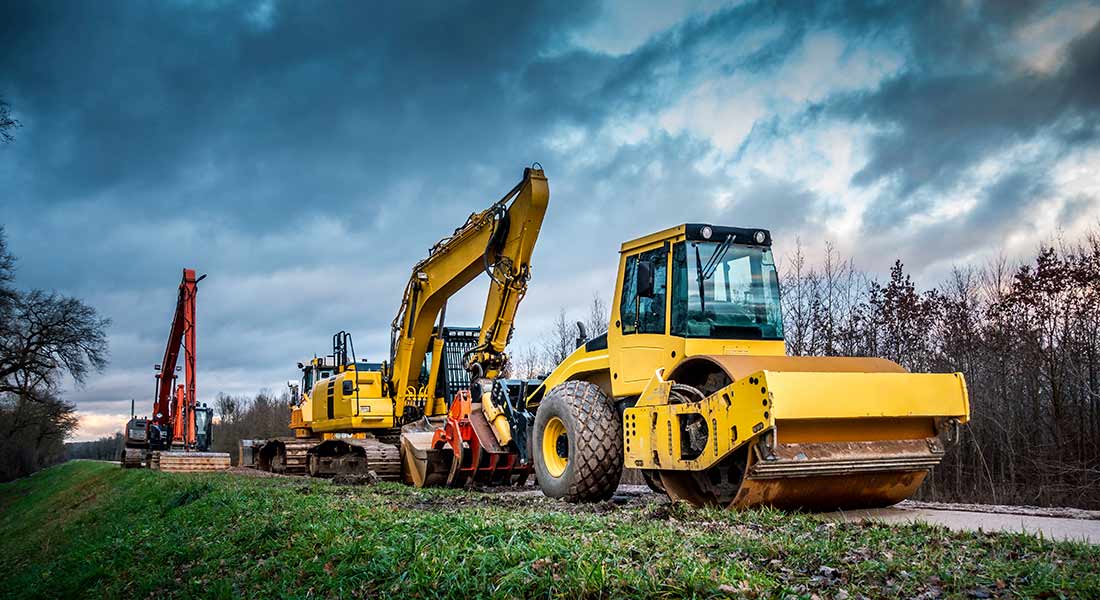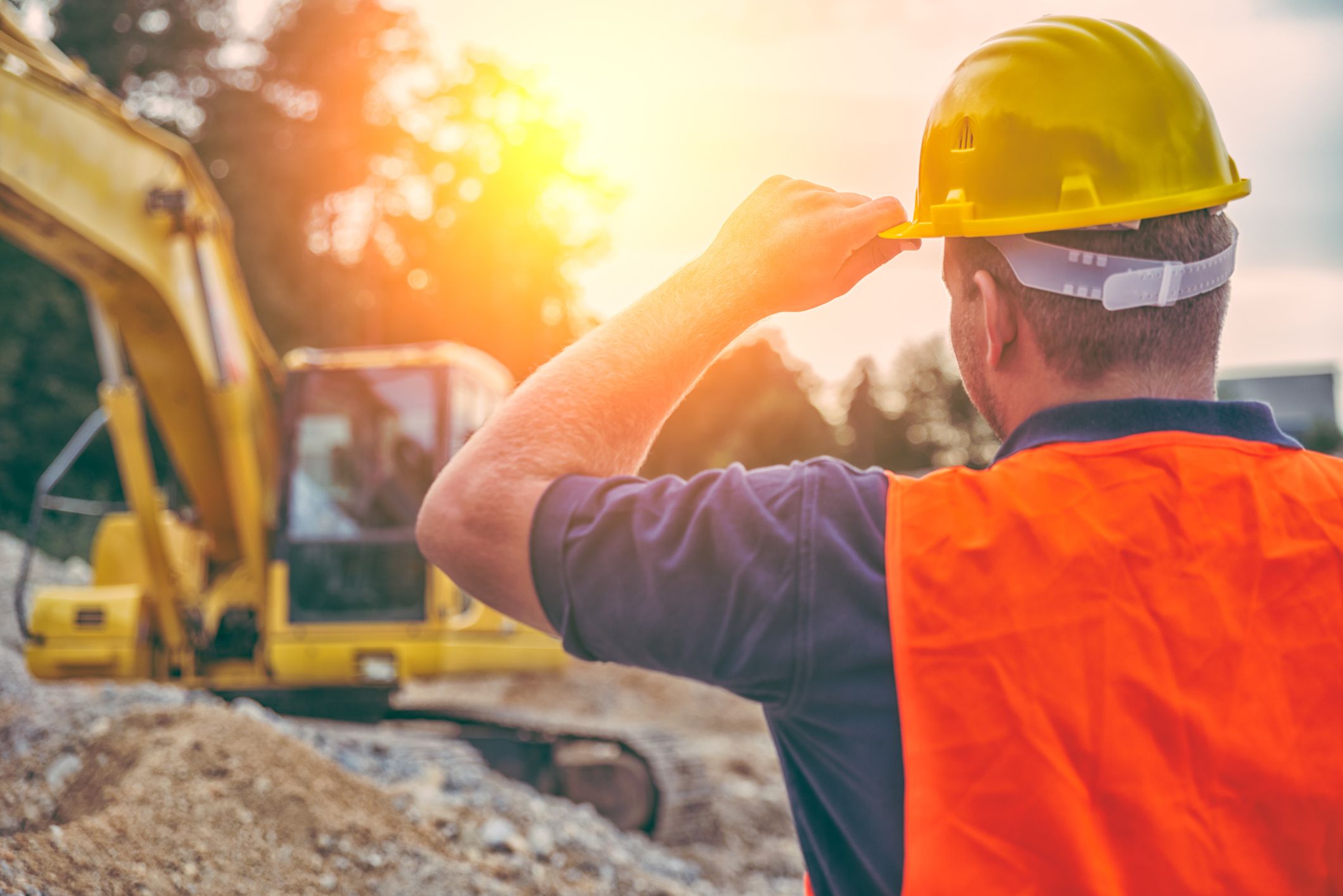Construction Equipment Rentals in Tuscaloosa AL: Whatever You Required for Your Task Website
Construction Equipment Rentals in Tuscaloosa AL: Whatever You Required for Your Task Website
Blog Article
Discovering the Financial Conveniences of Renting Construction Tools Compared to Owning It Long-Term
The choice in between leasing and having building tools is pivotal for monetary administration in the industry. Renting offers immediate cost financial savings and operational adaptability, permitting business to designate resources more successfully. Comprehending these nuances is vital, especially when considering just how they line up with specific task demands and monetary methods.

Price Contrast: Renting Vs. Owning
When reviewing the monetary effects of renting out versus having building equipment, a detailed cost contrast is necessary for making informed choices. The selection between renting and possessing can substantially impact a firm's bottom line, and recognizing the connected costs is critical.
Leasing building and construction equipment generally includes reduced in advance prices, allowing companies to allocate capital to various other functional needs. Rental arrangements often include flexible terms, making it possible for firms to access advanced machinery without lasting commitments. This versatility can be especially helpful for temporary tasks or fluctuating workloads. However, rental expenses can accumulate with time, potentially exceeding the expenditure of possession if equipment is needed for an extended period.
On the other hand, owning building and construction devices calls for a considerable initial financial investment, along with recurring prices such as devaluation, insurance policy, and financing. While ownership can result in long-term cost savings, it likewise locks up funding and may not supply the exact same level of versatility as renting. Furthermore, owning equipment necessitates a commitment to its usage, which might not constantly straighten with project needs.
Eventually, the choice to rent out or possess should be based on a thorough analysis of details project demands, monetary ability, and long-term calculated objectives.

Upkeep Obligations and expenditures
The choice between renting out and possessing construction equipment not only includes monetary factors to consider but also incorporates ongoing maintenance expenditures and duties. Having tools requires a considerable commitment to its maintenance, that includes regular inspections, repairs, and prospective upgrades. These duties can swiftly collect, bring about unexpected expenses that can stress a spending plan.
In comparison, when renting devices, maintenance is commonly the responsibility of the rental company. This arrangement allows specialists to avoid the financial problem related to deterioration, as well as the logistical challenges of organizing repair work. Rental contracts commonly consist of arrangements for maintenance, implying that professionals can concentrate on finishing tasks as opposed to fretting about tools condition.
In addition, the diverse variety of devices available for lease enables companies to pick the most current designs with sophisticated technology, which can improve efficiency and productivity - scissor lift rental in Tuscaloosa Al. By choosing services, services can stay clear of the long-lasting obligation of equipment devaluation and the linked maintenance headaches. Ultimately, reviewing upkeep expenses and obligations is vital for making an educated decision concerning whether to rent or have building devices, significantly impacting general job prices and functional efficiency

Depreciation Effect on Possession

A substantial factor to think about in the choice to own building and construction equipment is the influence of depreciation on general possession expenses. Devaluation represents the decrease in worth of the equipment over time, influenced by factors such as usage, deterioration, and developments in technology. As tools ages, its market value decreases, which can dramatically impact the proprietor's financial setting when it comes time to sell or trade the devices.
For building firms, this depreciation can translate to substantial losses if the equipment is not utilized to its fullest potential or if it lapses. Proprietors should make up depreciation in their monetary estimates, which can bring about greater total costs contrasted to renting. Additionally, the tax obligation ramifications of depreciation can be intricate; while it may offer some tax benefits, these are commonly balanced out by the fact of decreased resale worth.
Ultimately, the problem of devaluation emphasizes the significance of comprehending the long-lasting monetary commitment associated with owning construction equipment. Companies should thoroughly examine just how often they will use the official site equipment and the potential financial impact of devaluation to make an educated decision about possession versus renting.
Monetary Versatility of Renting
Renting out building devices site here offers substantial monetary flexibility, allowing firms to assign resources extra effectively. This versatility is especially important in a market defined by rising and fall job demands and varying work. By choosing to rent, organizations can stay clear of the significant resources expense needed for purchasing equipment, protecting capital for various other operational needs.
Furthermore, leasing tools enables business to customize their devices selections to specific job requirements without the long-term commitment related to possession. This implies that businesses can quickly scale their tools inventory up or down based on anticipated and present task needs. Consequently, this versatility decreases the threat of over-investment in machinery that may end up being underutilized or outdated with time.
One more financial advantage of renting is the possibility for tax benefits. Rental payments are usually thought about operating budget, permitting immediate tax reductions, unlike depreciation on owned and operated equipment, which is topped numerous years. scissor lift rental in Tuscaloosa Al. This instant expenditure acknowledgment can further boost a firm's cash position
Long-Term Project Factors To Consider
When examining the long-lasting requirements of a building organization, the choice in between renting and possessing equipment comes to be extra intricate. Key variables to think about include task period, regularity of use, and the nature of upcoming jobs. For tasks with extended timelines, acquiring equipment may appear beneficial due to the capacity for lower overall expenses. Nevertheless, if the devices will certainly not be used regularly across jobs, possessing might lead to underutilization and unneeded expense on storage, maintenance, and insurance.
The straight from the source building and construction industry is developing rapidly, with new tools offering improved efficiency and security attributes. This adaptability is particularly helpful for businesses that handle diverse tasks needing various kinds of tools.
Furthermore, economic stability plays a crucial function. Possessing tools often entails substantial capital investment and devaluation problems, while renting out enables more predictable budgeting and cash circulation. Eventually, the choice in between renting out and owning ought to be straightened with the strategic objectives of the building and construction company, taking into consideration both anticipated and current project needs.
Final Thought
In conclusion, renting out building and construction devices supplies significant monetary advantages over lasting possession. The lessened upfront prices, elimination of upkeep responsibilities, and avoidance of depreciation add to boosted cash money circulation and monetary flexibility. scissor lift rental in Tuscaloosa Al. Furthermore, rental payments function as immediate tax obligation reductions, additionally benefiting contractors. Eventually, the choice to rent instead of very own aligns with the dynamic nature of building tasks, enabling versatility and accessibility to the most recent devices without the economic problems related to ownership.
As equipment ages, its market value diminishes, which can dramatically affect the owner's economic position when it comes time to offer or trade the devices.
Renting construction devices provides substantial economic adaptability, allowing firms to allot sources a lot more effectively.In addition, leasing tools makes it possible for companies to customize their equipment choices to certain task demands without the long-term dedication linked with possession.In final thought, renting construction equipment uses considerable monetary benefits over long-lasting ownership. Inevitably, the choice to rent out instead than very own aligns with the dynamic nature of building and construction jobs, permitting for adaptability and access to the most current tools without the financial problems connected with possession.
Report this page